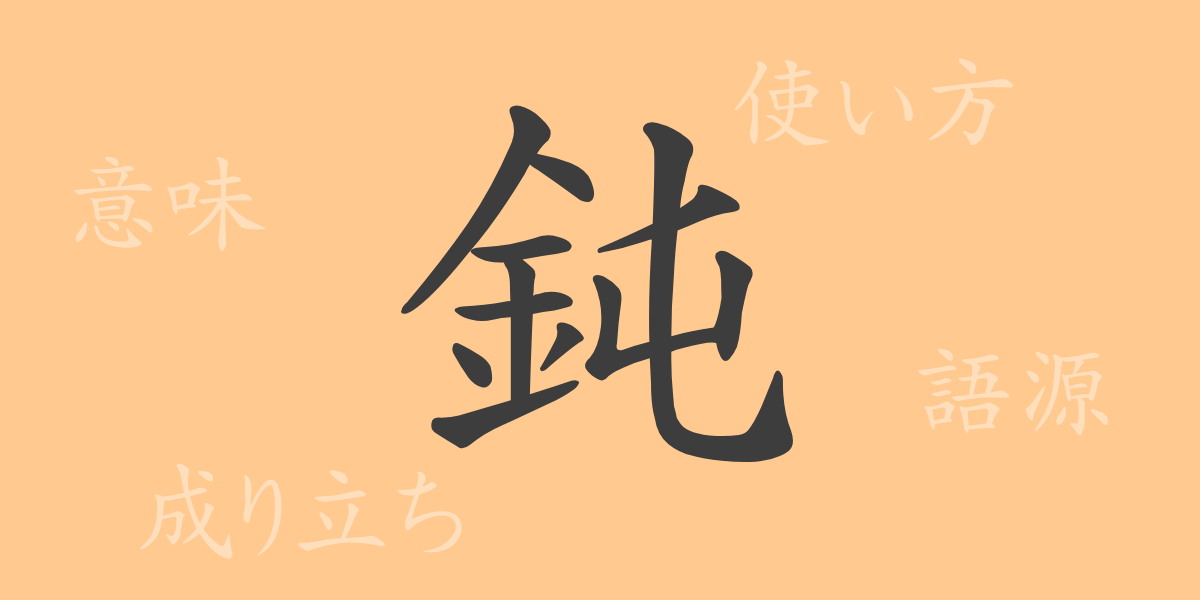Japanese language is rich in expressions that convey emotions and situations, one of which is the Kanji ‘鈍 (どん)’. Commonly used in everyday life, this article delves into the origins, meanings, and uses of the Kanji ‘鈍’, exploring its significance in our language. By the end of this read, you’ll gain a deeper appreciation for the diverse allure of ‘鈍’.
Origins of ‘鈍 (どん)’
The Kanji ‘鈍’ originated from ancient China, initially representing the difficulty of working with hard metals during processing. This character was used to describe metals that were too hard to work with, and over time, it also came to signify slowness or dullness in response, thus evolving to mean insensitivity.
Meaning and Usage of ‘鈍 (どん)’
The primary meanings of ‘鈍’ include physical dullness, as in lacking sharpness, or slowness in sensation or understanding. For example, ‘鈍感 (どんかん)’ describes someone who is slow to notice changes in people’s emotions or surroundings. ‘鈍い痛み’ refers to a dull, lingering pain. This Kanji is also used to depict the speed of thoughts or understanding.
Reading, Stroke Count, and Radical of ‘鈍 (どん)’
The Kanji ‘鈍’ has distinctive features in its form and sound:
- Readings: On’yomi ‘ドン’, Kun’yomi ‘にぶい’, ‘にぶる’
- Stroke Count: ‘鈍’ comprises 12 strokes.
- Radical: The radical for ‘鈍’ is ‘金 (かねへん)’, which is associated with metal.
Phrases, Idioms, and Proverbs Using ‘鈍 (どん)’
There are several idioms and proverbs that include ‘鈍’, illustrating its widespread use in Japanese language:
- 鈍感 (どんかん) – Insensitivity to others’ emotions or subtle changes.
- 鈍器 (どんき) – A blunt instrument, metaphorically referring to a less sharp method or means.
- 鈍足 (どんそく) – Slowness in running or in the progress of affairs.
- 鈍色 (にびいろ) – A dull gray, indicating a lack of brightness or vividness.
- 鈍角 (どんかく) – An angle greater than 90 degrees.
These expressions are used in everyday conversation and literature to describe characteristics of people or things.
Conclusion on ‘鈍 (どん)’
The Kanji ‘鈍’ not only has distinctive form and sound but also carries depth in meaning and application. It is apt for expressing physical and sensory dullness and helps depict various human emotions and states. The phrases and proverbs including ‘鈍’ demonstrate the richness of expression in Japanese language. Through this article, we hope you have deepened your understanding of ‘鈍’ and enriched your knowledge of Japanese language.

























